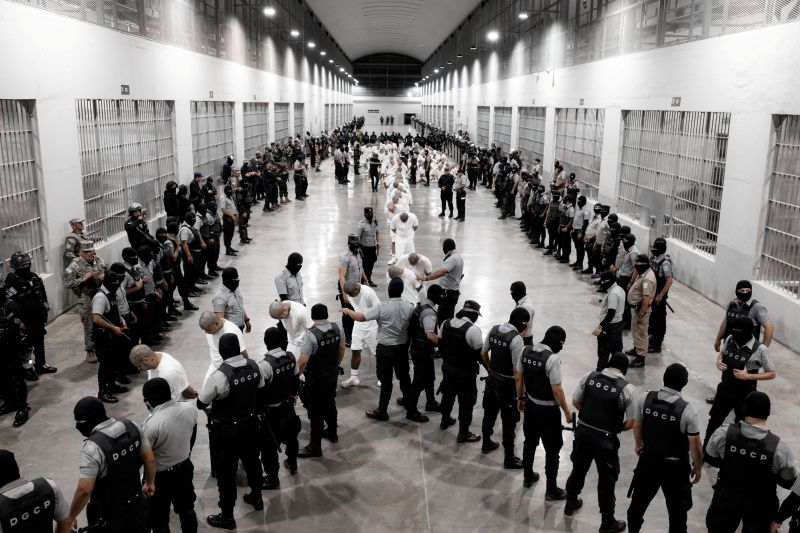
El Salvador says it shares gang intel with the US — and requests specific deportees
El Salvador says it shares intelligence with the United States about gang members wanted by the Central American nation and provides “complete records” on them before formally requesting their deportation.
Villatoro’s comments come after the Trump administration deported more than 270 men to El Salvador, accusing them of being members of the Venezuelan Tren de Aragua gang or Salvadorans tied to the MS-13 gang.
US officials later admitted that one of those deported – Kilmar Armando Abrego Garcia, a Maryland-based sheet metal worker and father of three – was removed from the US in an “administrative error.” He is now in El Salvador’s notorious high security prison Cecot, despite a 2019 ruling by an immigration judge that was meant to protect him from deportation due to death threats from a gang targeting his family’s pupusa business.
The case has sparked a broad debate over due process in the deportations. While the Trump administration has alleged Garcia Abrego was a member of MS-13, his attorneys and family have rejected those claims and insist his detention is unjust.
The Salvadoran government has not commented on individual cases, including Abrego Garcia’s. But Villatoro said that Salvadorans deported from the US who are placed directly into the country’s prison system are those with pending criminal records in El Salvador.
“We checked all of them. And if we found someone who we are very sure that he is a member of any gang in El Salvador, we capture them and put them in jail,” he said.
He also addressed cases where individuals claim innocence, saying: “It’s very common that some people say, ‘Oh, he’s innocent.’ But the problem is: your background talks for you, right? You can say, ‘I’m not a member’ — OK, but what happened with your criminal record?”
‘Vague accusations’
Abrego Garcia’s legal team has flatly rejected that claim.
“The government of El Salvador has not provided any convictions or substantiated evidence to support its claims, and it is deeply concerning that these unverified allegations are being used to retroactively justify a deportation that violated court orders,” the statement continued.
The Supreme Court on Monday temporarily paused a court-imposed midnight deadline to return Abrego Garcia to the US, agreeing to a request from President Donald Trump that will give the justices more time to consider the case.
It’s unclear what is influencing the US decision to block his return.
Villatoro insisted that El Salvador actively shares its information with US law enforcement and that deportations are based on detailed records.
He said the country has kept extensive files on suspected gang members for years, including those believed to be living in the US and elsewhere.
“We know their background — how many times they were captured for homicide, for drugs, for weapons,” he said. “This is not about random deportations — this is based on the full record.”
Villatoro, who has served in President Nayib Bukele’s cabinet since the beginning of his term, is considered one of the architects of his country’s anti-gang strategy.
The Cecot jail where Abrego Garcia is being held houses both convicted criminals and those still going through El Salvador’s court system.
With constitutional rights suspended under El Salvador’s yearslong state of emergency, some innocent people have been detained by mistake, Salvadoran president Bukele previously admitted. Several thousand of them have already been released.
Last year, the prison director estimated the inmate population was between 10,000 and 20,000. He now says it’s approaching the prison’s 40,000-inmate maximum — but declined to provide a specific figure, citing security concerns.
Villatoro said the government is prepared to expand the facility, or even construct a second Cecot-like maximum-security prison, if needed.
“We have enough land to build even another (Cecot),” he said.
